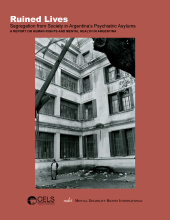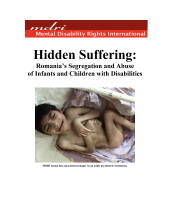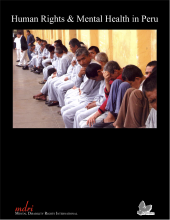Ruined Lives: Segregation from Society in Argentina’s Psychiatric Asylums
Date
Documents human rights violations perpetrated against approximately 25,000 people detained in Argentina’s psychiatric institutions. More than 80 percent of these people are detained for more than a year— and many are detained for life. Two-thirds of all psychiatric beds are part of the public health system.




